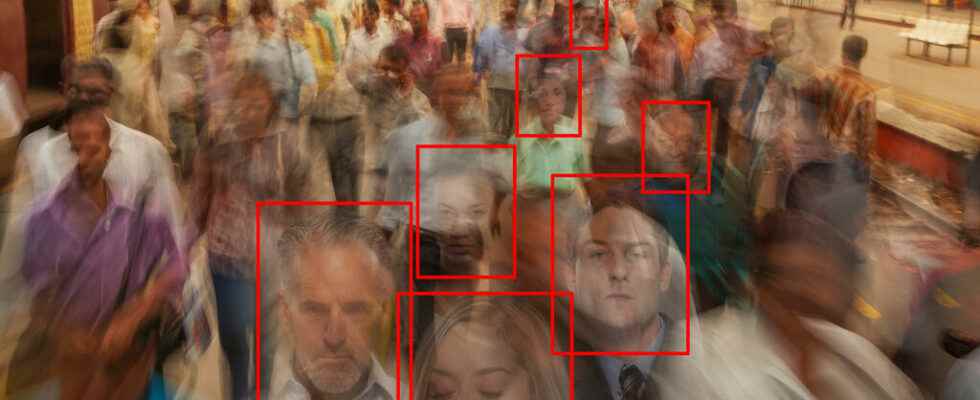The American company Clearview AI, which specializes in facial recognition, offers its software free of charge to Ukraine, and more specifically to the Ministry of Defense.
Facial recognition technologies make it possible to identify by the shape of the face any person passing in front of a camera. Concretely, video images captured live are generally compared to photos that have been stored in a database.
The company Clearview, which is based in New York, has long become the world expert in the analysis of these images, which are mostly taken from photos circulating on social networks. The firm has developed specific search engines that are commonly used by private security agencies and law enforcement agencies around the world to confuse potential offenders.
The company’s image database includes several billion photographs collected on the Web. This gigantic mass of digitized portraits was created without warning Internet users, an activity contrary to the General Data Protection Regulation in Europe.
►To listen also: Facial recognition: where to set the limit?
Promote facial recognition
The firm that announced that it had offered its software for free to Ukraine, and more precisely to the Ministry of Defense, directs its communication only on the positive side of its system. But in several countries, Clearview AI has been subject to sanctions, mainly for its failure to respect the personal data of individuals reminds us Paul Olivier Gibert, president of theFrench Association of Correspondents for the protection of personal data : “ For Ukraine, the Clearview software is intended to facilitate the identification of victims of the bombings, to find isolated people, to bring together the members of refugee families. But the system is also put to use for a more delicate use such as the identification of Russian spies (with the danger of false positives that this device inevitably generates by analyzing photos, editor’s note).
These extremely powerful facial recognition technologies can also be used for oppressive purposes. ” The European regulation on personal data finally establishes this principle obliging companies on the Web not to do anything with the data of Internet users under penalty of a certain number of sanctions. On the other hand, the GDPR is a regulation that was put in place in times of peace, it is difficult to operate in times of war. But wars do not last permanently and it is a reference on which we must rely to enforce the issues of respect for individual freedoms. “, underlines Olivier Gibert.
Biometric surveillance that raises questions
After several international investigations, the Clearview AI system has been banned in several countries, in particular, after the complaints launched by four non-governmental organizations grouped together within the association Privacy International which had filed appeals before the French, Italian, Austrian and Greek Cnil and British concerning in particular the sale to police services of its facial recognition technology.
In February 2021, a report by the Canadian Privacy Commissioner found that she had carried out illegal “mass surveillance” in Canada. The report stated that ” more than three billion face images had been collected. The company withdrew from the Canadian market.
In France, the CNIL, National Commission for Computing and Libertieshad put Clearview on notice in December 2021. But the most recent sanction comes from Italy where the American firm was fined 20 million euros on March 9 for non-compliance with the GDPR, the regulation European on personal data.
